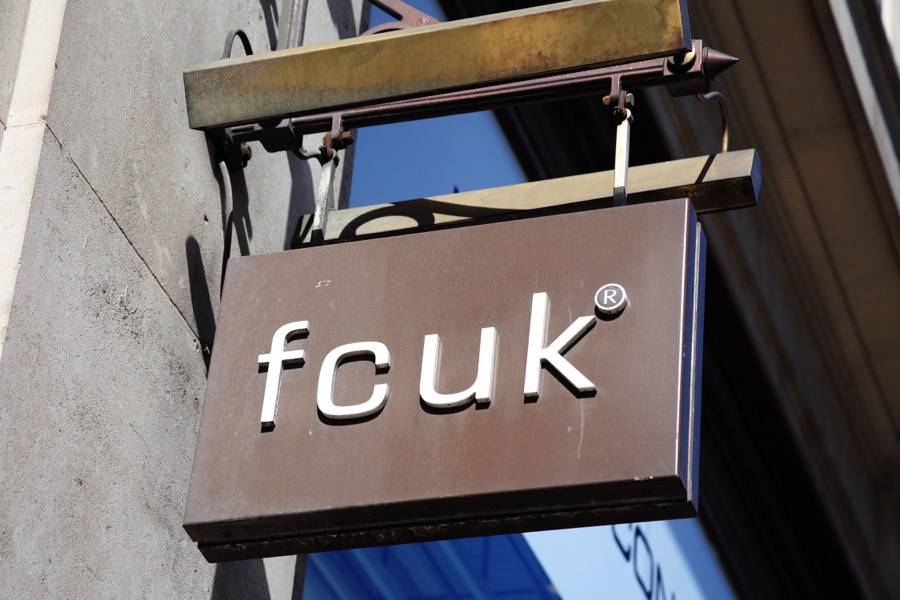A debate that has raged for a few years now…
There are a number of topics in oil and gas that always seem to generate a healthy debate, and the fracking vs fracing disagreement is one of them. We’re hoping to settle the debate once and for all.
On industry websites we see other versions as well, frac’ing and fraccing are versions that might have been created to pull an emphasis away from the dreaded K. Lets get the ball rolling with the fact that my Apple Pages writing app has given a red underline to all versions but ‘fracking’…
It seems that the VS situation comes from industry people knowing that it comes from the word ‘fracture’, and ‘the media’ adding the K… Can we find the truth?
Below will be a list of researched reasons, or pitches for both versions of the word. The lists will be as complete as possible, as we try to play an impartial ‘devils advocate’ role for both sides.
Then, there will be a final word on the topic.
The reasons why ‘fracing’ is correct:
The engineering process involves hydraulic fracturing of rock, as in creating fractures or cracks. Frackturing is not a word, and looks terrible when written with a K.
When you abbreviate a word, you don’t add new letters, you remove the existing ones. Fracturing becomes fracing. Fracking isn’t much of an abbreviation, with only two letters missing from the total.
Incorporating the K creates a combination of fracture, and frak. Frak, in common culture as a sanitised version of f*ck. The TV show, Battlestar Galactica popularised this first in the late 1970’s, then repeatedly in future versions of the series. By adding the K, a simple scientific word morphs into a ‘dirty’ word, which was the reason why environmentalists and the mainstream media did it. This is a cheap and offensive negative publicity stunt.
Users of Frak/Frack will no doubt understand the low brow titillation created by words that start in an F and end in a K. FCUK is a British clothing brand that capitalised on this gutter humor. They sold countless T-Shirts just because of their logo. Whilst the quality of the fabric might have been fine, it seemed that this logo was the main reason for their success. Should science follow such a low path?
Fracture and fracturing get abbreviated to frac and fracing? Whats so complicated or confusing about that?
When you break a bone, and an X-ray shows hairline cracks, what has happened? Do you have a fracked femur? Of course not, the X-ray image will show a fracture, although you might have shouted ‘FRACK’ at the moment that it happened!
The industry itself has always used the non K version of the words. The experts, and people who are involved in these associated techniques every day are the ones that would be followed.
Can you imagine any other industry where this might be tolerated? What if the mainstream media decided to second guess NASA? Instead of writing about a lunar rover, they called it a ‘lunar raver’ to sell more newspapers, or cheapen the industries achievements? Low brow newspapers often twist words to create a laugh or intrigue, we shouldn’t adopt these things as the new versions.

Even if historically, the industry used a K in the word, this should be now abandoned for the sake of the industries reputation. Re-branding happens all the time.
For example, sometimes a car manufacturer creates a car name that has a different meaning in an overseas market. Mitsubishi, a Japanese company created a car called the Pajero. In Spanish, Pajero means ‘wanker’ which is an insulting term. The ‘Pajero’ became ‘Montero’ in Spanish speaking markets. If hate filled activists are chanting ‘frak you’ or ‘frak off’, surely this is a similar example of where common sense should be prevailing?
The reasons why ‘fracking’ is correct:
It makes sense phonetically in relation to the ‘c’ vs ‘ck’ rule. Always use ck after a short vowel. Frack is like track, smack and stack.
Track, and tracking make sense, and do truck and trucking. Frack and fracking also make sense. Tracing has a completely different meaning, and is trucing even a word? Words usually need to make sense, those that do are more likely to stay in the vocabulary of the people.
Different versions of a word can have different core spellings, and in fact English has countless exceptions where academic rules are broken. Even if industry insiders refer to fracturing, it’s the common usage that prevails.
In the short term, we follow dictionary definitions of a correct spelling. In the long term, the dictionaries follow the most popular practical use. This is why new words are added to revised additions.
Another example can be seen by looking at history and how languages evolve. This is why the Bible keeps getting revised, and why Shakespeare was hard to grasp for many of us at school. If it were true that fracing was ‘the original term’, it isn’t anymore. If we look at what people are searching for in Google, we see a preference for the K versions.
Here’s an example of some old English text from 1066:
An. M.LXVI. On þyssum geare man halgode þet mynster æt Westmynstre on Cyldamæsse dæg 7 se cyng Eadward forðferde on Twelfts mæsse æfen 7 hine mann bebyrgede on Twelftan mæssedæg innan þære niwa halgodre circean on Westmyntre 7 Harold eorl feng to Englalandes cynerice swa swa se cyng hit him geuðe 7 eac men hine þærto gecuron 7 wæs gebletsod to cynge on Twelftan mæssedæg 7 þa ylcan geare þe he cyng wæs he for ut mid sciphere togeanes Willelme …
And it’s modern translation:
1066 In this year the monastery at Westminster was hallowed on Childermas day (28 December). And king Eadward died on Twelfth-mass eve (5 January) and he was buried on Twelfth-mass day, in the newly hallowed church at Westminster. And earl Harold succeeded to the Kingdom of England, as the king had granted it to him and men had also chosen him thereto and he was blessed as king on Twelfth-mass day. And in the same year that he was king he went out with a naval force against William …
Source: http://www.public.asu.edu/~gelderen/hel/chron.html
Fracking is a clear peoples winner, and at some point, fracing might be completely removed from dictionaries. Will you be the last person to talk like Shakespeare in a modern society?
There is no rule in English that states that different versions of a word must contain the core letters of the longer ones. In addition, there are many informal or slang words that can mean the same thing but have completely letters. Idiot, goofball and moron have completely different spellings and mean roughly the same thing.
We don’t see truckers complaining that the word sounds similar to a curse word. The same goes for dozens of words that could be made to sound similar to other less appealing ones. Oil and gas workers need to get over themselves if they think the ‘k’ is just some type of smear campaign. Frack just looks right, and sounds right. Fracing without the ‘k’ makes the ‘c’ look like an ‘s’.
If frac is a word in its own right, and so is frac?ing then there needs to be a k. Just like panic and panicking or mimic and mimicking. It’s simple grammar. Thinking that one version sounds more rude is a little childish.
Go to the Oxford English dictionary online and type fracing… No results come up. Type in fracking and the result appears. Could it be that industry insiders are fooling themselves, or pushing back against environmentalists who twist the word into negative puns?
Industry insiders paint themselves as more qualified, or more expert than mainstream media journalists, that is understandable. What about Universities and scientists/inventors who are involved in fracking patents? Are they more qualified than the average geologist or drilling engineer?
Here’s a link to a ‘high authority’ paper:
http://repository.law.umich.edu/cgi/viewcontent.cgi?article=1007&context=mttlr
In fact, if you do 2 Google searches side by side, for fracing patents and fracking patents, guess which ones come up for BOTH results? The K version! Remember, Google pulls in results from real independent websites, they don’t change the spelling…

Conclusion
While a case can be made on both sides of the debate, it looks like history is, and will be on the side of fracking. In fact, while researching, I didn’t expect to come up with a conclusion. I expected that industry insiders were technically correct with the no k… But in reality the most popular version will evolve with the human language…
… Now I’m not so sure it seems like ‘fracking’ wins from both sides and gets the popular and academic vote?
Of course, there might be items missing from either lists that I’ve found. If this is the case then please post in the comments section. Could it be that fracing purists have been in an echo chamber for so long, no-one ever checked?
Could it be that there are pockets of local areas where fracing IS correct? A local variation of a national or international norm?





This problem is down to the industry being left behind in the PR world, keeping its head down, hoping it will blow over. But these greenies are good at PR and have held the stage for years now. They are well dug in, infiltrated to many levels of government and had minimal opposition to achieve that.
A few years ago I was driving with my then wife across Australia and called into a remote motel for an overnight stay. I wasn’t wearing anything or saying anything that might suggest I was anything to do with any business or activity. The owner, from behind the bar launched into a discussion about “how terrible this fracking this is” – I took a pace back and asked him what he knew about hydraulic fracturing – it was absolutely nothing. He might have been talking about some huge natural disaster or act of genocide.
I work with a company where we design and manufacture HF equipment. Currently this does not involve proppant injections (will do soon) – and our MD wrote to the BBC to correct them on their definition of HF to correct them that HF does not have to include proppant and for the many uses of our equipment in such as mining, and up to 10,000 psi, its not needed. But it’s still hydraulic fracturing. (In the largest underground copper mines in the world they use HF instead of explosives for quicker, cheaper and safer rock fragmentation – and also to relieve siesmic stress and to therefore reduce the risk of rock burst).
Hi Howard,
Thanks for taking the time to comment. I agree with and understand your sentiments regarding a lack of understanding by many that like to set the worlds to rights.
In hundreds of thousands of bars around the world, right now, similar conversations and rants will be developing. The most vocal and passionate will be those who are drinking more alcohol than the others.
They’ll be espousing views earlier consumed from the mainstream media. Their side of the argument will depend whether they follow left wing media, or right wing. These conversations will be happening not just about fracking, but about everything.
Problems are solved when the facts and issues are examined with an open mind, leaving aside political squabbles.
There are no ks in the word fracture. There are no ks in the word fractured. There are no ks in the word fracturing. The media needs to learn how to spell.
It is Frac’n. I’ve been in the industry all my life.This is how we spell it. Frac for short. When I read an article with frac spelled with the letter K I immediately quit reading the article due to the fact the writer ( journalist) has no clue what their writing about.
Hi Jeff,
I wrote this fully researched article and included every argument that I found, on both sides of the debate. It’s as balanced as I could make it, and none of the reasons included were my personal opinions. I actually don’t mind how people spell it.
The fact that you felt so strongly about it that you immediately stopped reading, but still spent the time to craft an insult is an example of why the debate is so interesting. Thanks for your input!
I can see Jeff Diseker’s point. Although it is becoming ubiquitous, and even creeping into the industry, the spelling “frack” is not a technical term, but a political term, and generally indicative of less knowledge of the subject than disdain for it.
Hi Joseph, I agree that the origins of the term indeed seem to come from political and derogatory motives. Over time, words become adopted into normal usage and the connotations change. We see many words and phrases that were acceptable and now are not and vice versa. When we look at the history of racism, homophobia and other emotive topics, plenty of previously benign words have completely changed in meaning. It looks likely that one day in the future, ‘fracing’ won’t be used any more, but there won’t be negative connotations with ‘fracking’, it will just be a descriptor. Thanks for commenting!
My first encounter with the “k” spelling was in a news article of a major national publication about 5 years ago. The article was clearly slanted against the entire practice of hydraulic stimulation. I responded to the author that there is no “k” in the root word “fracturing” and it made no sense to spell the word “frack” or “fracking”. The author wrote back that ” inclusion of the k made the word sound more evil”. I forwarded this email to the author’s chief editor and encouraged the editor to demand objective reporting from his employees and to save editorials for the editorial pages. That author never appeared again in that magazine. Of course since that time entire publications have become nothing but editorials (See the Washington Post for example) and objective journalism is a rare find.
The vowel i following a c makes the c sound like an s. Also the single consonant c with an i or an e after it renders the preceding vowel before the c, in this case frAcing=long a, as pronounced ay. Thus the word spelled fracing would be pronounced fraysing. To make the word say “fracKing,” as related to fracturing, requires a 2nd consonant after the c, which renders the c a hard k-sound, rather than a soft s-sound c. Thus: fracking.
Paula (and grammar) wins! I’m switching to “fracking” so I can avoid accidentally saying fraysing!
Thanks for this great article on the different between “fracking” and “fracing”. You have a valid point as to why it should be spelled the latter way. Thanks for al of your hard work!
I’m fine with spelling it ‘fracing’ as long as it rhymes with ‘pacing’, ‘racing’, ‘spacing’ and every other English word that ends with ‘acing.’ On the other hand, if you want to follow the pronunciation rules of English and not confuse the heck out of everyone, it should be ‘fracking.’
Macaroni and cheese. Is it abbreviated to mack, or mac? Why add a k to an abbreviation of fracturing then??